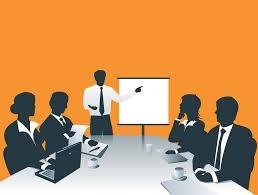HOW DOES THE IMPROVE THE COMMUNICATION CAPABILITY?
HOW DOES THE IMPROVE THE COMMUNICATION CAPABILITY?

Strengthening good communication skills seems very easy for some people. Such people seem to have some sort of ability to articulate their thinking effectively in themselves as well as be adept in listening and being able to understand the information that others give to it. However, most people can still hone our ability to communicate. If you want to find some simple ways to improve your interpersonal communication skills, here are some steps you can follow.
The first step in developing or enhancing your communication skills requires that you rethink your perception of what the communication really is. Many people view verbalization as the most important aspect of the process of communicating. In fact, although verbalization is very important in the process, it does not mean verbalisasilah the only essential ability needed to communicate effectively. We also need to hone our listening skills and the ability to use visual information in processing and responding to information.
Listening is more than hearing words spoken by others. Listening talent requires the listener to focus his attention only on the person who is speaking. It is important not only to hear the words, but also the tone of voice, the change in the tone of voice, the speed, and the emotion that accompanies the words. By doing this, the listener can gain a better understanding of the information the speaker is trying to convey.
Most importantly to remember, effective listening requires that we refrain from starting to think of a response while the speaker is still informed. Too many people jump to conclusions about what the speaker is saying so they miss important audio gestures. Developing the habit of allowing others to complete their speech before beginning to decide how to respond is not only important for developing competent communication skills but it is also very important to show the speaker that you are genuinely interested in what he says.
Visual cues are also an important tool in developing or improving communication skills. Paying attention to facial expressions and body language will help you embed more meaning into verbal presentations and often give important cues like why the speaker gives a certain thought in a certain way. Look at someone's eyes as he talks and also make sure to keep looking at him when you talk to him.
Good communication skills often take advantage of two simple techniques. The first technique is known as the perception check technique. This strategy involves the process of instilling your understanding of what has just been communicated to you. By double-checking your understanding, you will give the speaker a chance to confirm your perception or correct any possible misunderstandings.
The second tool to strengthen communication is known as the clarifying question technique. Clarifying questions will allow us to review any information that is still in doubt fully comprehensible. Unlike a perceptual check where you simply put the speaker's words into your own words, clarifying questions will allow you to review certain sections of the information and obtain data that the speaker may have said but is not very clear to You.
Communication skills are mutual. That means, there is a need to do all you can to effectively communicate your thoughts and ideas to others in a clear and precise way. To be able to achieve this, it is important to be able to pronounce clearly, speak in a balanced tone and at a good pace, use body language to help strengthen your verbal presentations and make frequent eye contact as you speak.
One thing to keep in mind is that effective communication skills and techniques will improve if you use them often. Therefore, it is good not to look at communication skills only as a means that you use in the workplace or in other special places in your life. Practice your abilities whenever you interact with others. You will soon realize that the effort will be very easy and you will get more satisfaction every time you meet with others.